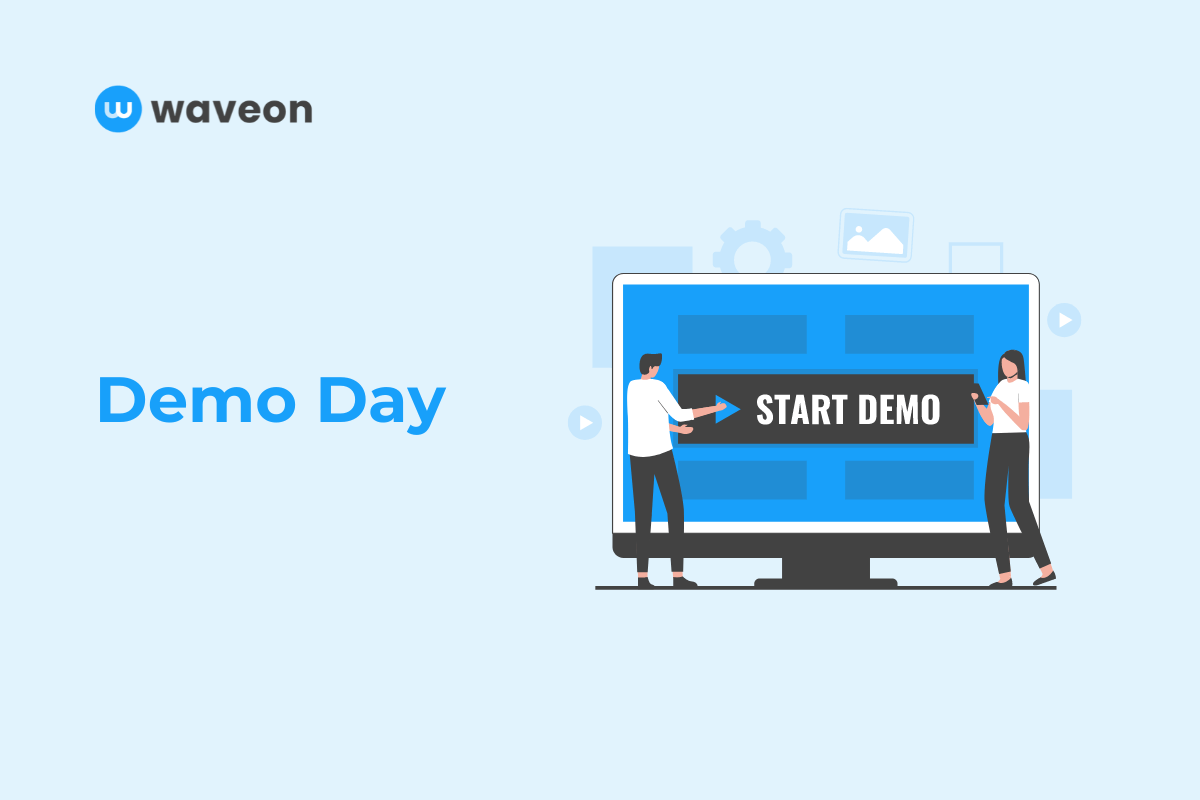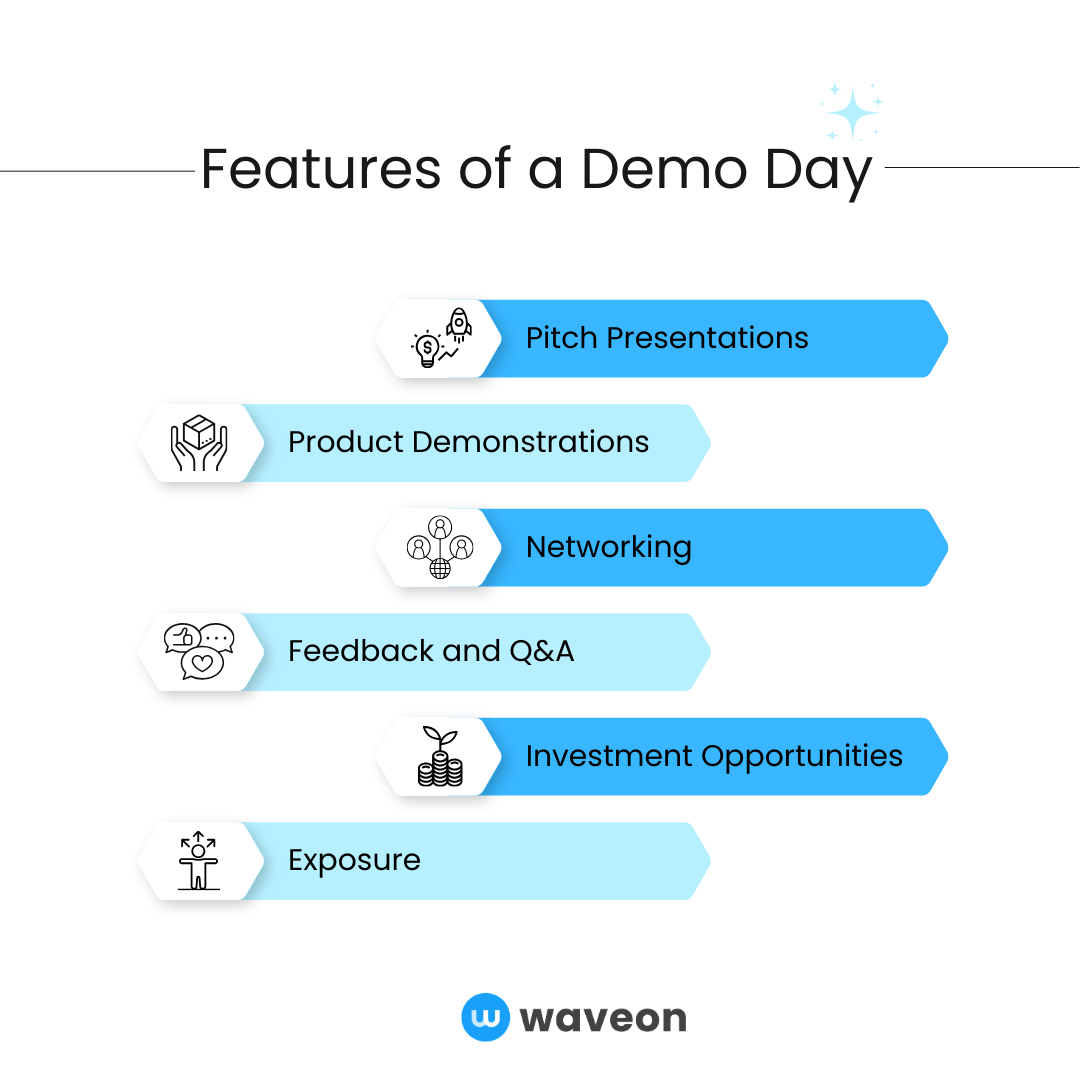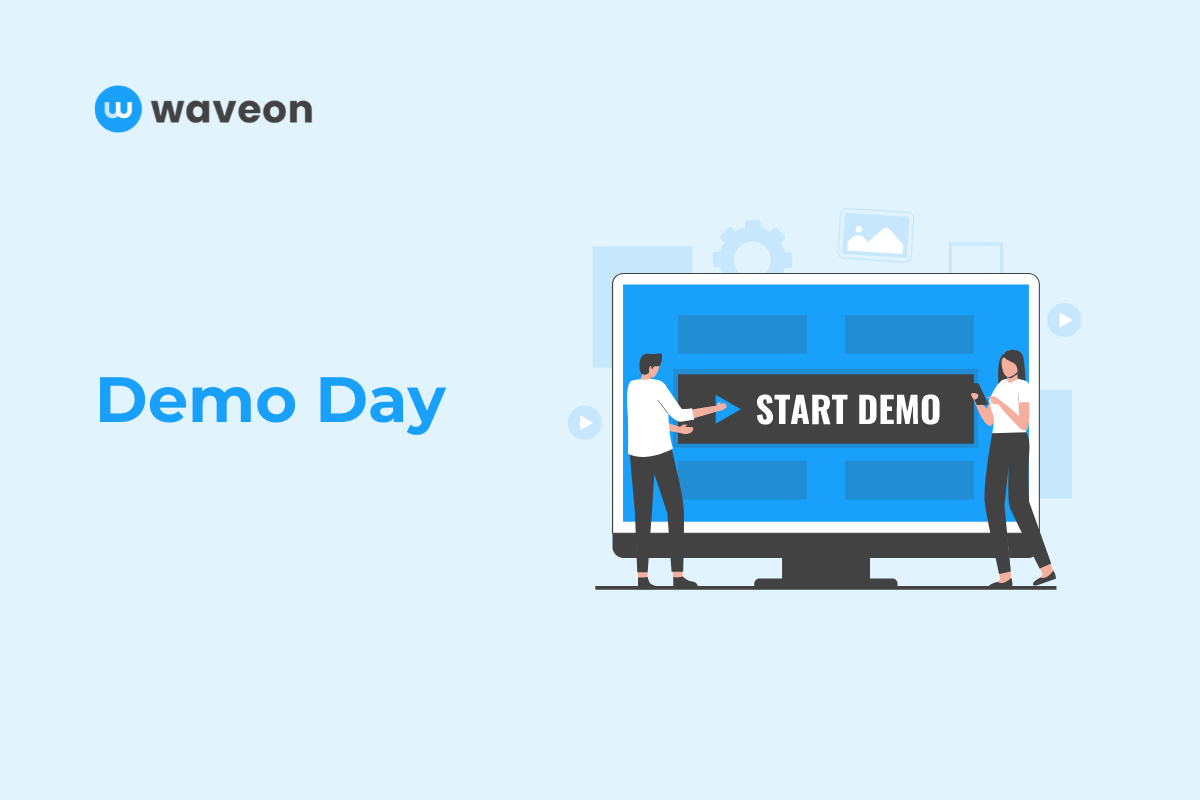Startup
What is "Demo day"?
Waveon Team
4/24/2023
0 min read

What comes to mind when you think of the atmosphere of a startup? You might picture a hackathon with free-spirited and passionate individuals gathering to have heated discussions about business, or a flexible work environment where people dress casually and work efficiently. Among these, today we will learn about the "flower" of startups, the Demo Day.
What is Demo Day?
Demo Day is an event where startups introduce their products or services to investors and announce the direction of their business to gain investment, M&A, and promotional opportunities, as well as to receive feedback.
Demo Day originated from a startup accelerator program in Silicon Valley, USA. Domestic and international accelerator companies hold Demo Day events to acquire a certain amount of brokerage revenue.
Since Demo Day serves as a gateway for startups that have not yet entered the market or lack promotional opportunities, many startups attend to sow the seeds of business success. Investors attend Demo Day to discover startups with potential and growth possibilities and provide their support.
Presentations made by startups at Demo Day are not for public relations (PR) to promote products or services to the public but for investor relations (IR) to persuade investors of the company's value.
In other words, many startups pitch their IR at Demo Day. The term "pitching" is used instead of "speech" because, like a pitcher throwing a baseball in a game, the presenter must deliver their business idea clearly and convincingly to the audience.
Key features of a Demo Day include:

Pitch Presentations: Founders present their startup ideas, business models, and the progress they've made to an audience. This often includes a pitch deck highlighting key metrics, market opportunities, and financial projections.
Product Demonstrations: Startups often showcase their products or services through live demonstrations or video presentations. This provides attendees with a firsthand look at what the company offers.
Networking: Demo Days offer opportunities for founders to network with potential investors, mentors, and industry professionals. Attendees can ask questions, provide feedback, and express interest in investment or collaboration.
Feedback and Q&A: After each presentation, there is usually a Q&A session where attendees can ask questions and provide feedback. This interactive element allows founders to address concerns and refine their pitches.
Investment Opportunities: Demo Days are a familiar venue for startups to secure funding. Investors attending the event may express interest in providing financial support to promising companies.
Exposure: Demo Days often attract media attention, providing startups with exposure and potentially generating press coverage that can boost their visibility.
What defines an excellent Demo Day presentation?
Clear Problem-Solution Presentation: Articulate the problem your product solves and present your solution clearly and compellingly. Ensure that the audience understands the value your product offers.
Engaging Storytelling: Craft a narrative that captivates the audience, making them emotionally invested in your startup's journey. Share anecdotes, challenges, and successes to create a connection.
Concise and Focused Content: Keep the presentation concise and avoid overwhelming the audience with too much information. Use simple language and visuals to enhance understanding.
Live Product Demonstration: Whenever possible, demonstrate your product live. Showcase its key features and how users can benefit from them. Be prepared for technical issues with a backup plan.
Market Opportunity and Traction: Present data on the market opportunity and highlight any traction your startup has achieved. This could include user acquisition, revenue, partnerships, or pilot programs.
Team Introduction: Introduce your team members and their roles. Showcase their expertise and commitment to the project. Highlight relevant experience or achievements.
Vision, Roadmap, and Call to Action: Share your vision for the company's future and outline upcoming milestones. Discuss your product roadmap and how you plan to evolve. Conclude with a clear call to action, specifying what you want the audience to do next (e.g., investment, partnerships, collaboration).
Points to consider during Demo Day and startup pitching:
What should be considered when pitching at Demo Day? The term "pitching" implies that a good pitch makes it easy for the catcher to catch the ball in baseball.
In other words, the core of startup pitching is to be able to explain your business idea easily and attract the attention of investors in a short amount of time.
Presentations in large companies or consulting typically have a beginning-middle-end structure, where detailed evidence is gradually built up. However, startups are given about 5 minutes at Demo Day, so they must be able to make investors understand and appeal to them in a very short time.
Your unique business storyline, interesting yet concise.
Instead of filling the short presentation time with meaningless clichés or exaggerated data, it is essential to clearly show the unique storyline of your business. The flow is to "define the problem to be solved," then "explain the technology or service solutions your business can offer," and finally present a "concrete action plan to implement the solution."
The problem to be solved should be a distinct inefficiency in the market that can elicit sympathy from investors. You should be able to confidently say that you can solve a relatable problem in an "innovative" way and that you have a well-thought-out plan for doing so.
Demo Day can be seen as the essence of countless entrepreneurs' blood, sweat, and tears. That is why it is called the "flower" of startups.
In summary, Demo Day is a pivotal event in the startup world where entrepreneurs present their business ideas and products to potential investors and stakeholders. It provides a platform for showcasing solutions to real-world problems, telling engaging stories, and gaining exposure in the entrepreneurial ecosystem.
A successful presentation involves clear communication, concise content, live product demonstrations, market insights, team introductions, a vision for the future, and a compelling call to action.
Curious about more articles? Check out https://www.waveon.io/blog











.png)
